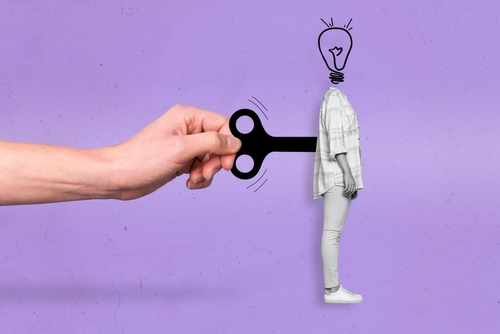Friends are such integral parts of our lives. Their companionship provides a sense of belonging every human being strives for. They offer solace when times get tough and lift us up when we get down.
Their support builds us back up when life breaks us down and, realy good friends often drive us to become the best versions of ourselves.
For many people, It would be difficult to think of life without our closest friends. However, not all friendships are built on healthy foundations.
Sometimes, beneath the surface of seemingly supportive relationships lurks a complex and harmful dynamic that is the exact polar opposite of everything a friendship stands for: codependency.
These types of relationships can be emotionally draining and hinder our personal growth. For this reason, it is imperative to understand the meaning of codependent friendships, their impact, and long-term implications.
By learning to recognize the signs of manipulative codependency, assessing the dynamics within our friend groups, and taking steps to break free from codependency, we can cultivate relationships that are based on mutual respect, support, and independence.
What Is A Manipulative Codependent Friend?
The very definition of codependent friendship is that it is a complex pattern of behavior that develops when one person becomes excessively reliant on another for emotional support, validation, and a sense of identity.
At a glance, it may seem like an expression of deep care and concern between friends. However, codependency can quickly evolve (or, rather, devolve) into a manipulative pattern, where one individual assumes the role of the “caretaker” or “rescuer”, while the other one becomes the “dependent” or “victim”.
The main characteristic of this dynamic is a power imbalance and an unhealthy level of emotional entanglement, with a manipulative codependent thriving on controlling the relationship by exhibiting certain behaviors, such as:
- Emotional manipulation: They use guilt-tripping, passive-aggressive remarks, or emotional blackmail to get their needs met.
- Excessive need for validation: They constantly seek reassurance and validation from their friends, relying on them to boost their self-esteem.
- Lack of boundaries: They disregard personal boundaries and intrude on their friends’ lives, often crossing lines without respecting their privacy or individuality.
- Emotional volatility: They may display extreme emotional highs and lows, making it challenging for their friends to maintain a stable and healthy connection.
The actions of a manipulative codependent may be subtle, leaving their friend feeling trapped and emotionally exhausted by the feeling of “obligation” to constantly provide support and validation, often at the expense of their own well-being.

Is My Friend Group Codependent?
Identifying whether your friend group exhibits codependent tendencies can be challenging. Especially so within a larger collective, as each friendship within it may have its unique dynamics. However, there are several signs that can indicate codependent friendship dynamics:
- Enmeshment: The boundaries between individual members are blurred, with everyone heavily relying on one another for emotional support and decision-making.
- Lack of individuality: Each member’s identity becomes intertwined with the group, making it difficult to differentiate their own wants, needs, and values from those of the collective.
- Dependency on group approval: The group’s validation and acceptance become crucial for each member’s self-esteem, leading to conformity and fear of expressing dissenting opinions.
- Sacrificing personal growth & autonomy: The needs and desires of the group take precedence over individual aspirations, hindering personal development and independence.
- Enabling behaviors: Codependent friendships are often defined by the encouragement of unhealthy habits in one another, such as substance abuse or staying in toxic relationships.
With these factors in mind, one question emerges as a must-know.
Are Codependent Friendships Bad?
While not necessarily “bad”, in the sense of being intentionally harmful or malicious, there’s no doubt that codependent friendships have detrimental effects on the well-being and personal growth of all individuals involved.
The main reasons for this are unhealthy dynamics, the imbalance of power, and excessive emotional reliance. Put together, these factors result in an emotionally draining and physically exhausting relationship that can even be life-threatening once enabling behaviors come into play.
Do Codependent Friendships Last?
While some codependent friendships may endure for a while, primarily due to the mutual reinforcement of unhealthy behaviors, they rarely (if ever) stand the test of time. The very nature of this relationship makes it challenging for each party to sustain a healthy and fulfilling connection.
The Caretaker may sooner or later become overwhelmed by the constant need to rescue and support. On the other hand, the Dependent may start feeling suffocated and trapped in their reliance on the other person.
Over time, dissatisfaction builds up, leading to resentment, culminating in a strained relationship and its eventual dissolution. In other words, a codependent friendship often crumbles under the weight of emotional exhaustion and imbalance.
This relational dynamic happens more than you realize. And, the sad part is that usually these individuals really truly care about one another.

How Do You Break Codependency In A Friendship?
Liberating yourself from the clutches of codependent friendships is no easy task, but it’s far from impossible. However, doing so will require awareness and discipline, as well as the courage to commit to personal growth. Here are some steps you can take:
- Self-reflection: Train yourself to recognize any patterns of enabling, rescuing, or over-dependence. Then, examine your own behaviors and emotions within the friendship, as this can allow you to acknowledge their negative impact on your well-being.
- Establish boundaries: Clearly define your boundaries and communicate what’s appropriate to your friend. This may include expressing your needs, saying no when necessary, and practicing self-care. Just remember to be assertive, and also respectful of your friend’s wants and needs..
- Seek support: Reach out to a trusted and impartial third party outside the friendship who can provide objective perspectives and guidance. This could be a PIVOT coach. Doing so will help you learn how to deal with a codependent friend, as well as provide tools and strategies to help you break free from unhealthy patterns.
- Foster independence: Nurture your individuality and learn to rely on yourself for emotional support and validation. You can do this by engaging in activities that promote self-esteem, developing new hobbies, and cultivating a strong support network outside of the codependent friendship.
- Gradual detachment: In some cases, the only option is to create some distance from the codependent friend in order to break the unhealthy patterns, create space for personal growth, and begin emotional healing. This can be challenging, yet it is a crucial step towards building healthier and more balanced friendships.
Learn To Deal With A Codependent & Rediscover The Meaning Of True Friendship With PIVOT’s Help
Whether it is you or someone close to you who is trapped in the codependent friendship, know that the circle of enmeshment and unhealthy behaviors can be broken. PIVOT is here to help you on your journey to freedom and authenticity.
Our transformative Glass House retreat awaits to provide a sanctuary where you can find solace and rediscover your true self-worth. Guided by our dedicated personal coaches, you’ll embark on a journey of self-discovery and personal growth, learning to liberate yourself of ties that bind you.
Reach out to us today and embrace a future filled with authentic connections, genuine relationships, and emotional freedom.